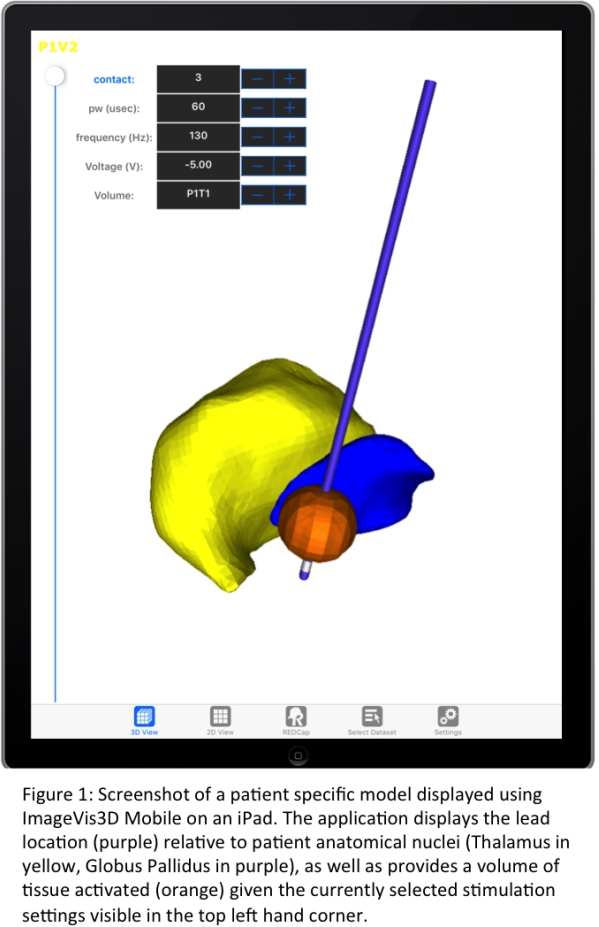Session Information
Date: Thursday, June 23, 2016
Session Title: Parkinsons's Disease: Clinical Trials I
Session Time: 12:00pm-1:30pm
Objective: To decrease time spent on deep brain stimulation (DBS) programming while improving quality of life for patients and caregivers by providing nurses with an iPad-based clinical support system.
Background: Two problems with DBS are: 1) the expense and expertise required for programming, which is likely to be exacerbated by the introduction of new technology such as directional leads that will dramatically expand the range of possible stimulation settings; 2) the availability of expert programming for patients who live far from DBS centers. Our prior studies suggest that these problems could be addressed by providing DBS programming nurses with expert tools that decrease the amount of time required for programming. If successful, we anticipate that this approach could decrease the burden of DBS programming while improving quality of life (QOL) for patients and their caregivers.
Methods: We have developed an iPad-based decision support system that provides interactive, patient specific computational models of DBS (Figure 1). We are currently conducting a two-phase clinical trial to evaluate this system. In the first phase we are comparing patients outcomes from standard care versus those who are programmed by nurses who use our decision support system. In phase two, we will evaluate the ability of home health nurses to perform programming in patients’ homes. Measures of nurse performance (primary outcome) include number and duration of programming sessions, and total amount of time required to select stimulation settings. We will test for non-inferiority to standard care (secondary outcome) using the UPDRS, PDQ39, MCSI and patient-reported QOL measures. 
Results: Prior preliminary results demonstrated a reduction in DBS programming time from over 4 hours to less than 2 minutes using the iPad-based system. We have developed a new version of the iPad decision support system with enhanced user controls, MR/CT imaging and integration of REDCap surveys for capturing rating scales. We have enrolled two patients and caregivers into Phase I of our clinical trial.
Conclusions: We anticipate that the use of this clinical decision support system by nurses will achieve a meaningful time savings for programming and will also reduce patient and caregiver burden. We envision a future for DBS management where care is provided in the clinic and home settings by skilled nurses who will use expert systems for guidance.
To cite this abstract in AMA style:
G. Duffley, D. Martinez, J. Krueger, B. Lutz, M.S. Okun, C.R. Butson. Mobile decision support system for nurse managment of deep brain stimulation [abstract]. Mov Disord. 2016; 31 (suppl 2). https://www.mdsabstracts.org/abstract/mobile-decision-support-system-for-nurse-managment-of-deep-brain-stimulation/. Accessed December 26, 2025.« Back to 2016 International Congress
MDS Abstracts - https://www.mdsabstracts.org/abstract/mobile-decision-support-system-for-nurse-managment-of-deep-brain-stimulation/
